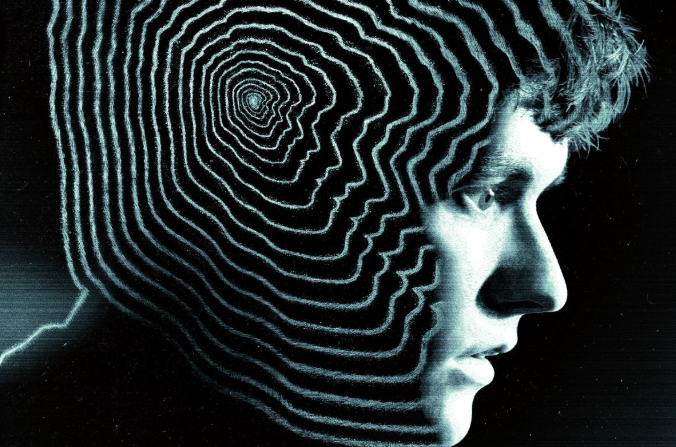Down the rabbit hole
Black Mirror: Bandersnatch proves to be mundane despite its interactive format.
The promotional poster for Netflix’s Black Mirror: Bandersnatch foreshadows the film’s mind-bending subject matter, which ultimately falls flat when combined with a plethora of confusing and unsatisfying storylines.
January 16, 2019
The Bandersnatch, an otherworldly and terrifying creature that first materializes in Lewis Carroll’s novels “Through the Looking Glass,” and “Alice and Wonderland,” is fascinating and intriguing, but Netflix’s new interactive film of the same name lacks similar qualities.
A choose-your-own-adventure film directed by Mr. David Slade, Black Mirror: Bandersnatch allows its audience to determine its own path through a story with a series of multiple choice questions that shape the characters and the plotline.
Despite its highly anticipated release, viewers will find Bandersnatch quickly descends down a rabbit hole of overcrowded themes and disappointing reveals.
Set in 1984, the film follows young computer programmer Stefan Butler, portrayed by Mr. Fionn Whitehead, as he struggles with transforming a dark science fiction novel into a video game.
Also featured in the film are Colin Ritman, played by Mr. Will Poulter, and Mohan Thakur, played by Mr. Asim Chaudhry, who work at the video game company that employs Stefan Butler. Stefan Butler’s father, Peter Butler, portrayed by Mr. Craig Parkinson, and his therapist Dr. Haynes, portrayed by Miss Alice Lowe, also play significant roles in the film.
Throughout Bandersnatch, viewers are given 10 seconds to make both insignificant and grave choices for Stefan Butler that change his life on-screen, forcing him to question the concept of free will.
After its release, the film was met with a neutral reception from audiences and from critics, earning a 74 percent rating from Rotten Tomatoes and a 61 percent rating from Metacritic. A recent El Cid survey concluded 51 percent of Cathedral Catholic High School students who watched the film found it worth the hype.
Although the film harbors potential with its inclusion of a charmingly nostalgic 80s setting and existential ideas, it ultimately suffers from poor execution and a lack of depth, giving readers the sense they’re watching an amateur science fiction movie.
One redeeming aspect of Bandersnatch is Mr. Whitehead’s on-screen talent as he depicts Stefan Butler’s powerlessness against the viewers’ control and subsequent descent into madness. But Mr. Whitehead’s efforts are overshadowed by most of the film’s undeveloped characters, including Ritman, who appears to serve no function except to further muddle the storyline by presenting a different personality in every scene.
Moreover, Bandersnatch’s variety of storylines make it nearly impossible for the audience to develop an emotional attachment to the characters, causing the interactive choices presented to seem aimless in the face of viewers who do not care enough to opt for a purposeful decision.
The film boasts five unique endings and millions of story permutations, but rather than maintaining its audience’s attention with unpredictable twists and turns, each bizarre and anticlimactic ending makes watching each storyline more tedious than entertaining.
While it’s important to acknowledge that Bandersnatch marks a fresh and unconventional step forward for interactive content, ultimately its dismal narrative and disappointing series of endings fail to sustain interest and to warrant multiple viewings.
Furthermore, NBC News recently revealed that Netflix now faces a $25 million lawsuit filed by Chooseco Publishing that accuses Bandersnatch of trademark infringement and claims the film’s disturbing content harms the reputation of Chooseco Publishing’s original 80s and 90s “Choose Your Own Adventure” book series.
But the controversy surrounding Bandersnatch and its mundane execution does not dissuade all viewers, as many people continue to be enthralled by the film’s interactive format.
“I loved the film because it was different than the usual Black Mirror episodes,” CCHS student Krissy Logemann ‘20 said. “I think interactive TV shows make the viewers feel more engaged and involved than regular TV shows, and I’d love to see more of them in the future.”






















































